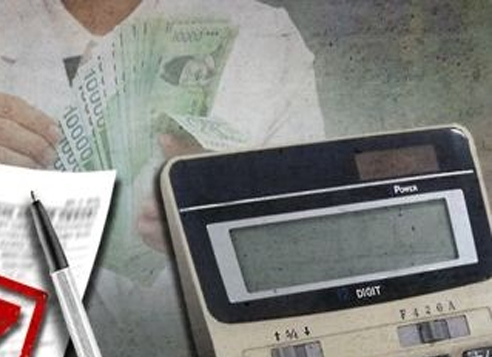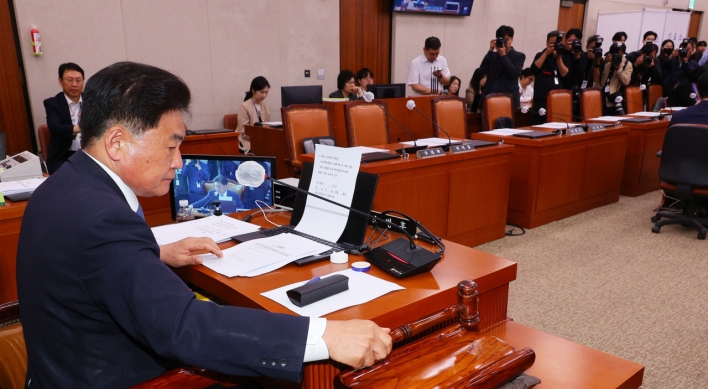Report suggests ending tax exemptions, higher corporate tax to fix income inequality
By KH디지털2Published : April 6, 2017 - 13:43
Limiting tax exemptions on earned income would be effective in increasing the country's revenue, but when it comes to raising tax rates, applying the hike on businesses would have better results than applying it on people's earnings, a report said Thursday.
Authored by professors Park Ki-baeg and Jun Byung-wook of the University of Seoul, the report measured the effects of different options in taxation revisions aimed at narrowing income inequality.

The report was requested by the National Assembly's finance committee and released ahead of the May 9 presidential election in which the economy, including state funding for growing welfare needs, is a major issue.
The report was written with the base assumptions that government spending is mainly responsible for improving income disparity. It also assumes that income tax is the core to income redistribution.
The report pointed out that 14.6 percent of South Koreans had an income of less than half of the nation's median as of 2012, higher than the 11.25 percent average of the member states of the Organization for Economic Cooperation and Development (OECD). On the other hand, welfare spending accounted for 10.4 percent of the gross domestic product as of 2014, lower than the average 21.6 percent for OECD countries.
Looking at different options, the report said eliminating exemptions on earned income would increase the state revenue by 13.4 trillion won ($11.88 billion) and improve the Gini coefficient by about 0.038.
Eliminating exemptions on state pension and insurance payments and on credit card spending would add 1.9 trillion won to revenue and also improve the Gini coefficient, it said.
Raising the tax rate by 3 percentage points on earned income of over 300 billion won would bring in 352.9 billion won in revenue.
Raising the rate by 4 percentage points for earned income of over 1 billion won would mean 485 billion won in revenue, according to the report.
Taxing 3 percentage points more on all earnings, including unearned income, in excess of 300 million won would increase the revenue by 896.5 billion won. A 4 percentage-point hike for over 1 billion won would increase the revenue by 1.43 trillion won.
But when looking only at the option of raising tax rates, doing so on companies would be more effective than on individual taxpayers, the report said.
Raising the corporate tax rate from 22 percent to 25 percent on companies in the 20 billion-won and above brackets, as proposed by some presidential hopefuls, would add 4.17 trillion won to state coffers. Applying the higher rate on companies in the 1 billion-won and above brackets would mean 7.4 trillion won in added revenue, the report said.
"It's time to make taxation and fiscal efforts to reduce the budget deficit through tax revisions and to lower the burden on the low-income population, which is higher when compared with other countries," the report said. (Yonhap)










![[Kim Seong-kon] Democracy and the future of South Korea](http://res.heraldm.com/phpwas/restmb_idxmake.php?idx=644&simg=/content/image/2024/04/16/20240416050802_0.jpg&u=)







![[Today’s K-pop] Zico drops snippet of collaboration with Jennie](http://res.heraldm.com/phpwas/restmb_idxmake.php?idx=642&simg=/content/image/2024/04/18/20240418050702_0.jpg&u=)